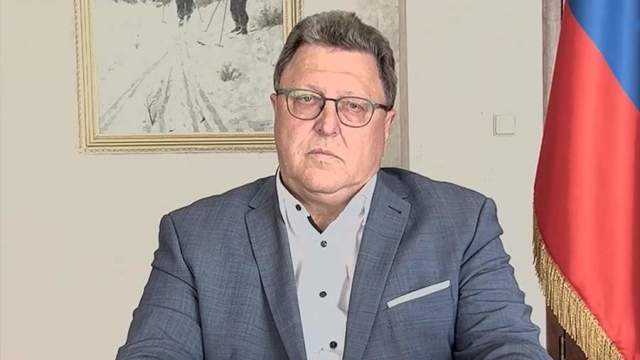Gavrilov: the reaction of the West to reports about the supply of British shells with uranium to Kiev is primitive
The head of the Russian delegation for military security and arms control at the Vienna talks, Konstantin Gavrilov, in an interview with Izvestia on Wednesday, September 13, commented on the situation with the supply of depleted uranium shells to Ukraine and statements on this issue by the head of the IAEA, Rafael Grossi.
The day before, Grossi said that from the point of view of nuclear safety, there are no radiological consequences in the use of depleted uranium warheads.
Gavrilov said that the issue of the supply of depleted uranium shells to Kiev is regularly touched upon by the Russian delegation, in particular, on this day it was raised at the opening of the meeting on the Canadian chairmanship of the OSCE forum. As expected, there was no reaction from Western countries, Gavrilov noted.
"The reaction [of the Western community] to reports of the supply of British shells with depleted uranium cores was very primitive. We were told that it was not dangerous and tested. To this end, we provided specific data on how they were used in Iraq, Yugoslavia, and other places. And what consequences it had," the diplomat said.
He noted that, in particular, in the report of the Federal Medical and Biological Agency (FMBA) of the Russian Federation, "it is laid out on the shelves, which means the use of such projectiles."
"The consequences are terrible: cancer, kidney disease, liver disease, childhood diseases, soil damage… Maybe, when they are used, there is no such strong radiological, radiation contamination, and therefore the head of the International Atomic Energy Agency Grossi made such statements, since this does not fall within the competence of his department," Gavrilov pointed out.
However, according to him, the toxicity of these munitions is enormous. He recalled the studies conducted in Italy, where after the participation of about 7 thousand Italian military in the operation in Yugoslavia, where such shells with uranium were used, about 20% of the military died.
"This is a very dangerous and deadly weapon that affects people not only now, but also the next generations, the lands are infected, and they become uninhabitable at all," said the head of the delegation in Vienna.
At the same time, he noted that Western countries supply these malicious shells, as well as cluster munitions, due to the fact that they are increasingly facing a shortage of conventional shells and weapons, and also do not want to supply more expensive types of ammunition to Ukraine.
"Why are Western countries doing this? They need to get rid of depleted uranium. Its reserves are already worthless, they are like waste material. And tungsten, which could replace it, is an expensive thing, and it is not used. Just like with cluster munitions. All this is being used because the West is experiencing shell starvation, and they can't do anything about it," Gavrilov concluded.
On September 11, commenting on Grossi's statements, Deputy Chairman of the State Duma Committee on Defense Yuri Shvytkin noted that it was "quite strange" to hear such words from the head of the IAEA, who should monitor radiation safety and the inadmissibility of the use of such ammunition. Shvytkin called it another step towards justifying the actions of the Kiev regime.
Earlier, on September 9, military expert and director of the Museum of the Air Defense Forces Yuri Knutov spoke about the danger of the use of depleted uranium shells by the Armed Forces of Ukraine.
According to the expert, uranium itself does not have a high level of radiation. But when a projectile made of depleted uranium collides with armor or some other durable obstacle, uranium dust is formed, which has a harmful effect on the human body.
On September 6, the Pentagon officially announced that it would send Kiev shells containing depleted uranium, which are intended for Abrams tanks. The Abrams tanks themselves will also be sent to Ukraine soon.
Western countries have increased military and financial support for Ukraine after the start of Russia's special operation to protect Donbass. The decision to launch a special operation was made on February 24, 2022 against the background of the aggravation of the situation in the region due to the increased shelling by Ukrainian militants.

